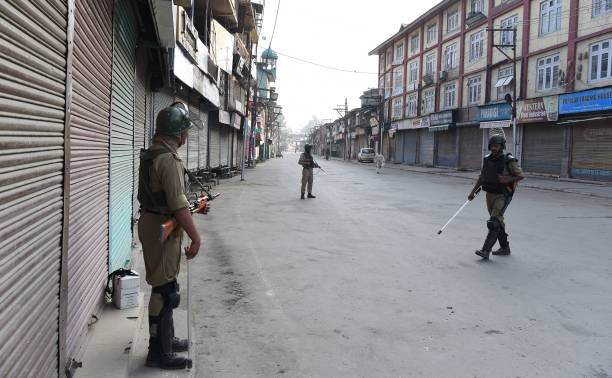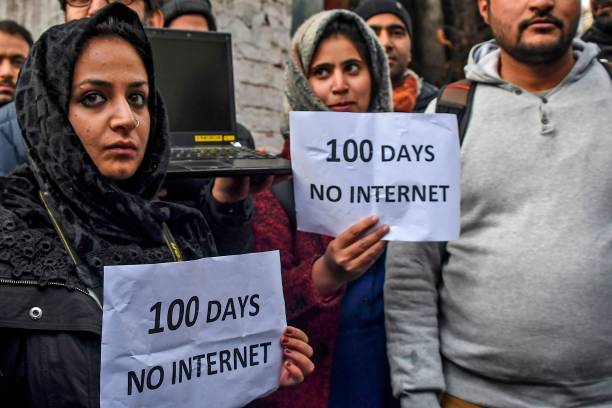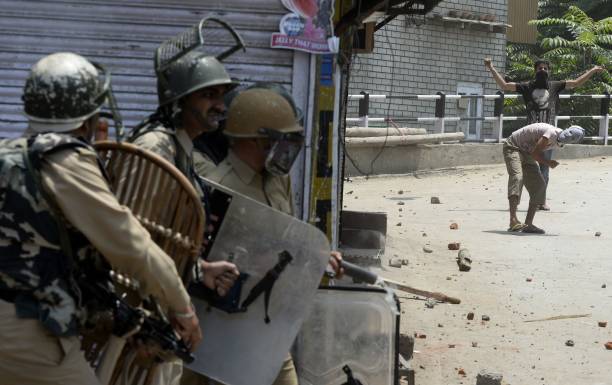India’s Kashmir had the most internet disruptions in 2022, says report
People in Jammu and Kashmir have been ‘facing unprecedented internet restrictions since 2019’

Your support helps us to tell the story
From reproductive rights to climate change to Big Tech, The Independent is on the ground when the story is developing. Whether it's investigating the financials of Elon Musk's pro-Trump PAC or producing our latest documentary, 'The A Word', which shines a light on the American women fighting for reproductive rights, we know how important it is to parse out the facts from the messaging.
At such a critical moment in US history, we need reporters on the ground. Your donation allows us to keep sending journalists to speak to both sides of the story.
The Independent is trusted by Americans across the entire political spectrum. And unlike many other quality news outlets, we choose not to lock Americans out of our reporting and analysis with paywalls. We believe quality journalism should be available to everyone, paid for by those who can afford it.
Your support makes all the difference.India-administered Jammu and Kashmir recorded the world’s highest number of internet disruptions in 2022 as prime minister Narendra Modi’s government shut down services 24 times, an annual analysis revealed.
Indian government censored the internet 10 times across the country and additionally, restricted internet services 24 times in the restive Jammu and Kashmir region, Surfshark virtual private network provider said.
“Internet censorship remains a common technique used by autocratic governments to isolate their citizens from the outside world,” Surfshark said in its report on Tuesday.
Internet censorship in Jammu and Kashmir accounted for 31 per cent of global restrictions and all were related to “political turmoil”, it said.
The almost 10 million people in the northernmost Indian region of Jammu and Kashmir - which shares its border with Pakistan - faced frequent shutdown of telecommunication services as Indian authorities attempted to curb protests and social unrest.
Authorities called it a precautionary measure as it continued to fight long-running insurgency in the valley.

The report said that residents of Jammu and Kashmir have been “facing unprecedented internet restrictions since 2019” when the Modi-led government revoked the region’s autonomy in a controversial move and downgraded its status from a state to a union territory.
In what was called the world’s longest internet shutdown, the Indian government enforced a communications blackout in the entire region by suspending internet, mobile and telephone connections on 5 August 2019 when the decision was announced.
While mobile internet and 2G services were restored in a staggered manner in January 2020, high speed internet was only restored in February 2021, 18 months after services were suspended.
“More than half of the world’s population was affected by internet censorship last year. Many of these cases involved full internet disruptions on a local or national level,” said Surfshark spokesperson Gabriele Racaityte-Krasauske.
“These can be devastating and extremely dangerous, especially during wartime, protests, or violent government repressions,” she said.

India’s eastern Bihar state witnessed “significant disruption to internet connectivity” on 17 June 2022 when mass protests broke out over the Indian government’s new military recruitment scheme, dubbed as Agnipath, it said.
Internet was suspended after hundreds of thousands of young people took to the streets to protest against the new policy which cut salaries, pensions and employment years of recruits.
According to Surfshark, 4.2 billion people were affected by internet censorship in 2022 globally, with Russia and Iran recording a significant number of internet restrictions.
Russia restricted Twitter, Facebook, and Instagram to curb anti-war protests following Ukraine’s invasion and the country has also blocked access to major international news sites.
Iran enforced near-total disruption to internet services and mass-scale disruptions to mobile networks in the wake of anti-government protests in the aftermath of Mahsa Amini’s death by Iran’s morality police.
"Through the past year we’ve seen how governments have used internet shutdowns and telecommunications blackouts as a tool of repression and control, silencing journalists, civil society, and the general public,” said Alp Toker, director, NetBlocks, a watchdog that monitors cybersecurity and internet services.
“Internet connectivity today underpins all human rights, which is why it’s more critical than ever to document mass-censorship incidents and find ways to get people reconnected.”
Join our commenting forum
Join thought-provoking conversations, follow other Independent readers and see their replies
0Comments